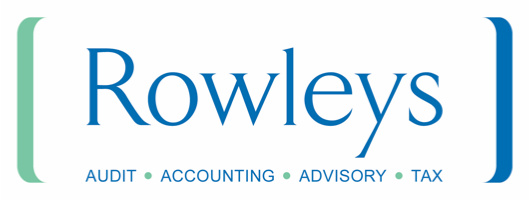News & Events
Forthcoming changes to Self-Assessment tax returns
12th July 2023
HMRC has recently announced a significant change to the requirements for filing Self-Assessment tax returns. Although not widely publicised, starting from the 2023/24 tax year, the income threshold at which a tax return is mandatory has been raised from £100,000 to £150,000. In this article, Rowleys accountants share more about the changes to Self-Assessment tax returns.
What are the changes to Self-Assessment tax returns?
Until now, employees earning £100,000 or more annually, with no other substantive sources of income and disregarding salary sacrifice arrangements, have been required to file a Self-Assessment tax return each year. However, from the 2023/24 tax year onwards, employees earning between £100,000 and £150,000, without any additional taxable income, will no longer be strictly obliged to submit a tax return.
It’s important to note that this threshold change only applies from 2023/24, so employees with income exceeding £100,000 in the 2022/23 tax year will still need to file a tax return by January 31, 2024, for that specific tax year.
What action needs to be taken?
Employees falling within the income range of £100,000 to £150,000 should receive a letter from HMRC after April 5, 2024, confirming that they have been removed from Self-Assessment. However, if you believe you meet the new criteria and don’t receive a letter, we recommend contacting HMRC to discuss your situation.
That said, it may still be advantageous for certain individuals to remain in the Self-Assessment system, and various factors should be considered.
Risks of not completing a Self-Assessment tax return
While the prospect of not having to file a tax return every year may seem appealing, it is worth considering if you should voluntarily continue submitting tax returns.
Fluctuating income, potential oversight of valuable tax reliefs, and the impact of additional income sources on tax liability are all things that could be overlooked if an individual no longer submits a Self-Assessment tax return. There’s also the High Income Child Benefit Charge (HICBC) to think about.
On top of this, the Self-Assessment process provides an opportunity to evaluate the accuracy and completeness of the PAYE system, making sure that you have paid the right amount of tax over the course of the year.
What other reasons are there for submitting a Self-Assessment Tax return?
As well as those who earn over £150,000, a variety of other people are also required to submit a Self-Assessment tax return. Specific criteria includes:
- Self-Employment: Those who are self-employed with income that exceeds the threshold set by HMRC, are required to file a tax return. This includes sole traders, freelancers, and individuals running their own business.
- Rental Income: Those who earn income from renting out a property or properties.
- Investment Income: Income from investments, such as dividends from stocks or interest from savings accounts, that exceeds the set limits, will need to be declared on a tax return.
- Foreign Income: Those who are UK residents but have income from abroad, will typically need to declare and report this income on a tax return, depending on certain criteria and double taxation agreements.
- Capital Gains: Selling or disposing of certain assets, such as property, stocks, or valuable possessions, making a profit above the annual capital gains tax allowance, will need to be reported and tax paid on the gains through a tax return.
- Directors and Shareholders: Company directors or shareholders who receive income or dividends.
- Complex Tax Affairs: Those who have tax affairs that are more complex, such as having multiple sources of income, various deductions, or claiming tax reliefs, may be required to file a Self-Assessment tax return to accurately report their financial situation.
These are just a few examples, and it’s essential to consult HMRC guidelines or seek professional advice to determine your specific obligations regarding Self-Assessment tax returns.
Please get in touch if you’d like one of our tax experts to review your position and provide advice on your Self-Assessment tax return. We can also take away the burden by completing and submitting your tax return on your behalf.
